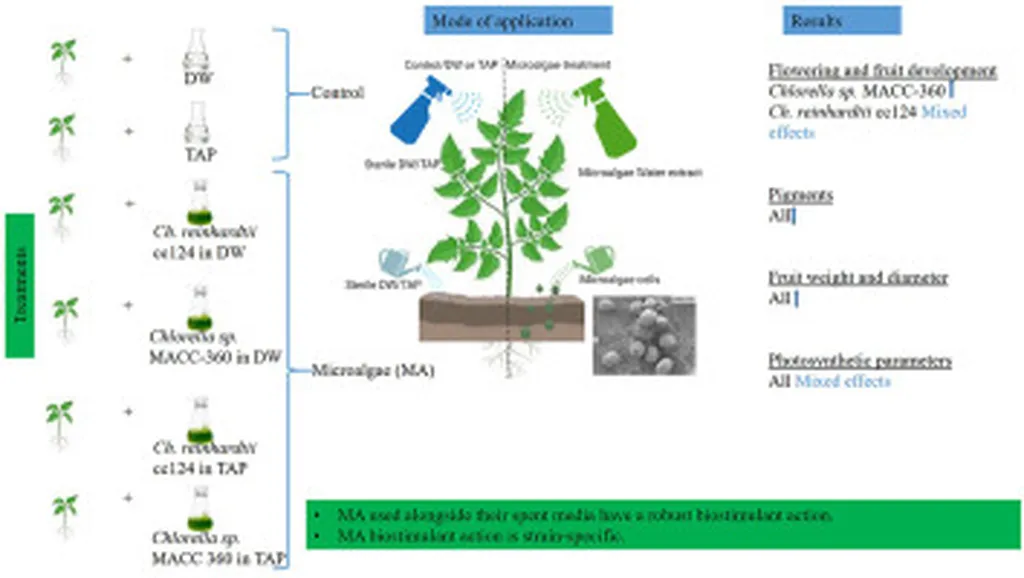In the quest for sustainable agriculture, a groundbreaking study led by Inese Skapste from the Faculty of Economics and Social Development at Latvia University of Life Sciences and Technologies in Jelgava, Latvia, has unveiled a promising solution that could revolutionize the way we approach crop productivity and soil health. Published in the journal ‘Frontiers in Sustainable Food Systems’ (which translates to ‘Frontiers in Sustainable Food Systems’ in English), the research explores the potential of algal digestate-based biostimulants to enhance crop yields while reducing reliance on synthetic fertilizers.
Europe’s food system is at a crossroads, grappling with demographic shifts, a heavy dependence on synthetic fertilizers, and the escalating impacts of climate change. Aligned with the European Green Deal and the Farm to Fork policy, Skapste’s study offers a beacon of hope. The research conducted a vegetation tray trial using three cover crops—lettuce, radish, and spinach—representative of palustrine species in the Baltic Sea region. The team assessed the effects of full and reduced mineral fertilization with and without algal biostimulant supplementation.
The results were striking. Using the biostimulant, particularly at a 6% application rate, could partially compensate for reduced nutrient input. This approach not only matched but even exceeded the yields of conventional full-strength fertilization. “The biostimulant’s ability to enhance soil health and minimize fertilizer input is a game-changer,” Skapste remarked. Statistical analyses confirmed significant yield increases for treatments with the biostimulant, especially under nutrient-limited conditions.
The implications for the energy sector are profound. As the world shifts towards sustainable practices, the demand for innovative solutions that reduce environmental impact while maintaining productivity is growing. Algal biostimulants offer a viable alternative to traditional fertilizers, potentially lowering the energy and resource intensity associated with their production and application.
“This research opens up new avenues for sustainable and resilient food production systems in Europe,” Skapste added. The study suggests that algal biostimulants could play a pivotal role in advancing sustainable agriculture, offering a pathway to meet the challenges of the future. As the agricultural sector continues to evolve, the integration of such biostimulants could shape the future of farming, ensuring food security while protecting the environment.
The findings published in ‘Frontiers in Sustainable Food Systems’ provide a compelling case for further exploration and adoption of algal biostimulants. As the world grapples with the need for sustainable solutions, this research offers a glimpse into a future where agriculture is not only productive but also environmentally responsible. The potential for commercial impact is immense, promising a new era of innovation and sustainability in the energy sector.

